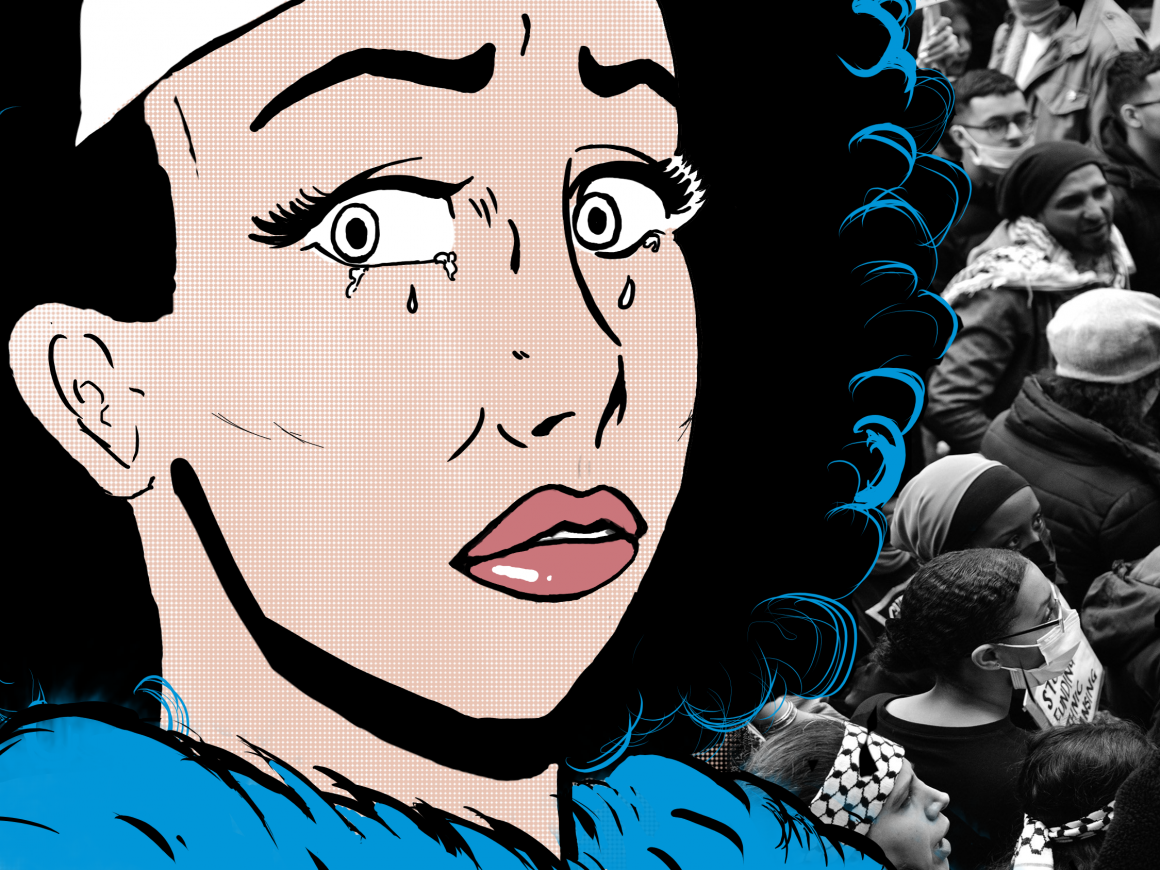
MCU’s Sabra represents colonial power without consequence
By Nazeefa Ahmed, October 5 2022—
Note from the author on April 23, 2025—
Since this article was published in 2022 in my second year of university, it’s been the subject of criticism, some of it valid, some of it weaponized. I’ve grown since writing this, and my views and writing have changed. I’ve chosen to leave it up with this note because I believe in being accountable for my past while also acknowledging that people can (and should) change.
This piece was written as an opinion article and was meant to take a clear stance. But in the time since, I’ve stepped into various reporting roles and no longer share my opinions online. I believe journalists earn the public’s trust through transparency about their past, and I hold myself to that standard.
Original article
At the D23 Expo on Sept. 10, Disney and Marvel Studios announced the debut of Israeli superhero, Sabra, in the upcoming film, “Captain America: New World Order.” The character will be played by Emmy nominee and Israeli actress Shira Haas, who will be battling the Falcon on Captain America’s side.
The announcement sparked outrage among pro-Palestinian groups who claim that a nationalist symbol of Israel on the screen further disrespects the political strife that Palestinians face to this day. The poorly-timed announcement of Sabra came days before the 40th anniversary of the Sabra and Shatila massacre of 1982, where thousands of Palestinian refugees and Lebanese civilians were killed by an Israeli-backed Phalange militia — it struck a nerve with many that an Israeli superhero has the same name as some of the most tragic days of Palestinian history.
Marvel did not directly address or pay respect to the massacre in their initial announcement. After the backlash, however, they released a tweet explaining how Sabra will be reimagined for the sentiments of the 21st century.
“While our characters & stories are inspired by the comics, they are always freshly imagined for the screen and today’s audience,” read the tweet. “The filmmakers are taking a new approach with the character Sabra who was first introduced in the comics over 40 years ago.”
Sabra was first introduced by Marvel Comics in issue 256 of The Incredible Hulk, published in 1981. In it, she was a spy undercover for the Israeli intelligence agency. Sabra was painted as a remorseful hero, showing grief for an Arab boy killed by Israeli forces, even though she represents and works for Mossaud. The Israeli intelligence agency, in the real world, was and is responsible for horrific assasination campaigns such as the Operation Wrath of God.
Other comic book issues that included Sabra were littered with Arab stereotypes: angry, aggressive and traditionalist men who are antisemitic and disrespect women. In one scene, an Arab soldier refused to fight alongside Sabra because she was a Jew. Many pro-Sabra fans are also using a similar argument to state that those who do not like her character are expressing anti-Semitism.
Sabra is not problematic because she is Jewish. The character Moon Knight played by Oscar Isaac had a Jewish backstory and was well regarded by fans. Many people also don’t know that the character Wanda Maximoff was a Jewish-Romani woman, even though her heritage was not included in the greater MCU. The problem with Sabra, however, is that she represents a state that continually oppresses a minority and denies them citizenship in their own homeland. Her superhero status represents modern colonial power without regard for global consequences. For some, no reimagined movie can mend such generational trauma.
The same argument can be applied to Captain America. Where he represents patriotism and individual freedom prided by American’s, the superhero also represents America’s dominating historical practices, foraging into other civilizations to impose democracy and individualism on countries that never asked for such measures. Captain America represents a nationalist ethos just as much as Sabra does, yet this fact falls out of consideration often.
Marvel’s attempt to respect and acknowledge cultural diversity through shows and movies such as Shang-Chi and the Legend of the Ten Rings and Ms. Marvel could be undermined by two nationalist heroes fighting together on the screen — two heroes representing countries that have killed and taken the homes of innocent civilians whilst dominating global politics with an iron fist.
In a statement to the Gauntlet, the Muslims Students’ Association (MSA) at the University of Calgary condemned the movie and Sabra’s superhero status based on Israel’s bloody past.
“The Muslim Students’ Association at the University of Calgary utterly and completely rejects this absolute mockery of a ‘superhero.’ Cheap propaganda that aims to normalize Israel’s illegal, unjust, and horrific occupation of the Palestinian people should have no place being portrayed as a ‘hero’ or someone people look up to,” read the statement. “3500 people were brutally killed in the Sabra and Shatila massacres by the Israeli forces. Amongst those who were killed were refugees, Palestinian citizens, Lebanese citizens, Muslims, Christians, and most importantly — innocent human beings.
“Marvel’s ensuing a concerning and regrettable appeasement tactic — that will only escalate tensions,” the statement continued. “Marvel should explore other options if they wish to revive their low-rated and failing shows — preferably not enabling apartheid and the massacre of innocents.”
And so the question remains: will Marvel’s “freshly imagined” Sabra pay respect to the Palestinian trauma associated with the century-long war? Or, will the franchise use Sabra as a show-doll of feminist progressivism to cloak the Israeli state’s violent past? Time will only tell, but the lack of acknowledgement for the anniversary of the Sabra and Shatila massacre, and the silence from well-regarded celebrities and corporations leaves me feeling less than hopeful.
This article is a part of our Voices section does not necessarily reflect the views of the Gauntlet editorial board.
